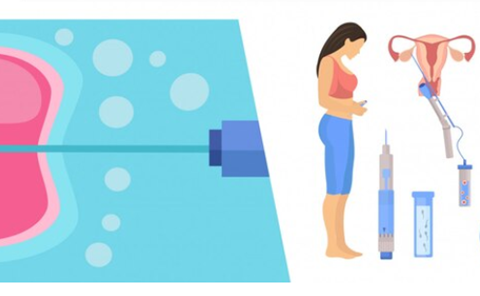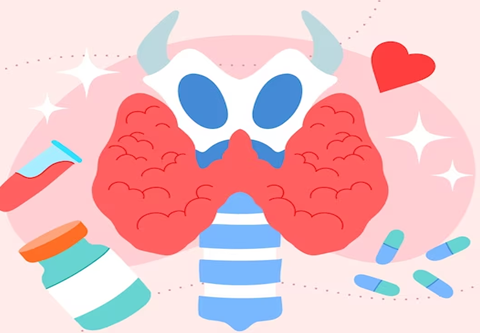WHY DOES IVF FAIL WITH GOOD EMBRYOS?

Are babies born from frozen embryos healthy?
December 26, 2021
Earlier Detection Of PCOS For Fertility Preservation
December 26, 2021WHY DOES IVF FAIL WITH GOOD EMBRYOS?
Female infertility is a disorder in which a woman cannot conceive naturally due to underlying health issues. Infertility is defined as a woman’s inability to conceive naturally after a year or more of trying. Various factors cause infertility including insulin resistance, obesity, PCOD/PCOS, and endometriosis. Workup tests performed by a fertility specialist determine the actual cause of female infertility.
Nisha IVF provides infertility treatment in Ahmedabad that is both safe and effective. The centre is equipped with the newest technology and experience for a successful IVF treatment in Ahmedabad. Nisha IVF Centre is the best IVF hospital in Ahmedabad with well-trained and skilled gynecologists and fertility specialists. Experts hope to reach a high success rate even in cases of severe infertility. The infertility team is constantly developing innovative techniques to help patients have a more effective treatment experience.
Continue reading to learn why IVF with a healthy embryo fails?
WHAT EXACTLY IS IVF?
In vitro fertilization (IVF) is a type of assisted reproductive technology used by infertile couples. Fertilization takes place outside the female body in a lab in this advanced reproductive method. Hormonal injections are used to boost egg production at first, and then doctors extract the mature eggs. They are quickly combined with the sperm, and fertilization takes place. Finally, the developed embryo is placed in the uterus of the woman for implantation.
However, an embryo may fail to implant on the uterine wall, resulting in a missed pregnancy. In this situation, there could be several reasons for an IVF cycle’s failure.
Let’s discuss the
Reasons for IVF failure:
Pregnancy and embryo development are biological processes that are similar to other biological processes. The embryo must be of good quality for successful implantation. However, even high-quality embryos might sometimes fail to implant. In 90% of cases, it is to blame for the failure of implantation. The following are some of them:
Embryo implantation rate: In women between the ages of 35 and 40, the embryo implantation rate is roughly 50% and 12%, respectively. If a woman’s embryo is of poor quality, it will not be implanted. It results in a failed IVF cycle because the ovaries have ceased developing due to polyps or cysts.
The uterus’s health: The success of an IVF process is determined by the uterus’s health, the woman’s age, and the body’s response. Doctors administer drugs to stimulate the ovaries so that an egg can be produced during an IVF treatment. Elevated FSH levels, low eggs, and poor body reaction to IVF medicines are all terrible symptoms. If your IVF medicine can create more eggs, in vitro fertilization can be successful. It’s a sign that your hormones are working correctly. If this does not occur, the chances of a successful IVF are reduced.
Age and mental health of the woman: A woman’s age has an impact on IVF success. It is another cause for the in vitro fertilization technique’s failure. When an older woman has had numerous failed IVF cycles, she will try again. But her chances of success will decrease with each failure. IVF failure might also be caused by mental and emotional stress. People’s mental health can be harmed if they remain traumatized or stressed due to a previous failed IVF cycle or for any other reason.
Let’s take a look at the Process of Implantation
After the completion of the IVF procedure, the implantation takes place fourteen days later. The embryo adheres to the uterine walls and begins to divide. Because of an issue with the uterus lining, implantation may not occur in some cases. The health of the uterine lining heavily influences this treatment. The location of embryo placement, tube insertion, and removal all have a significant impact on the outcome.
How one can improve the chances of getting pregnant after IVF?
- Drink at least 6 to 8 glasses of water per day to stay hydrated. Blood flow will be increased if you drink enough water. Healthy eggs will benefit from oxygen-rich blood. Blood flow can also be improved through exercise, yoga, and body massage.
- Healthy foods such as fruits, vegetables, cereals, and fish also contribute to the health of your eggs.
- Maintaining a healthy weight is also vital when trying to conceive. The quality of your eggs will suffer if you are overweight or underweight.
- It is always beneficial to your general health to be de-stressed. Yoga, meditation, rest, a warm bath, aromatherapy, and massage should all be part of your daily routine to keep you stress-free.
Are you thinking about starting a family?
Suppose you are planning to start your family and are experiencing infertility. Nisha IVF can provide you with a total infertility solution. If your IVF treatment is not working, don’t give up. You should reconsider the procedure. You must maintain a positive attitude and never give up.
Infertility can result from a variety of reasons in both the male and female reproductive systems. However, the causes of infertility are not always easy to pinpoint. Many therapies can dramatically increase your chances of becoming pregnant. Hormone therapy, fertility medications, and surgery are among them. Furthermore, assisted reproduction involves the use of a variety of medical methods to fertilize an egg.




